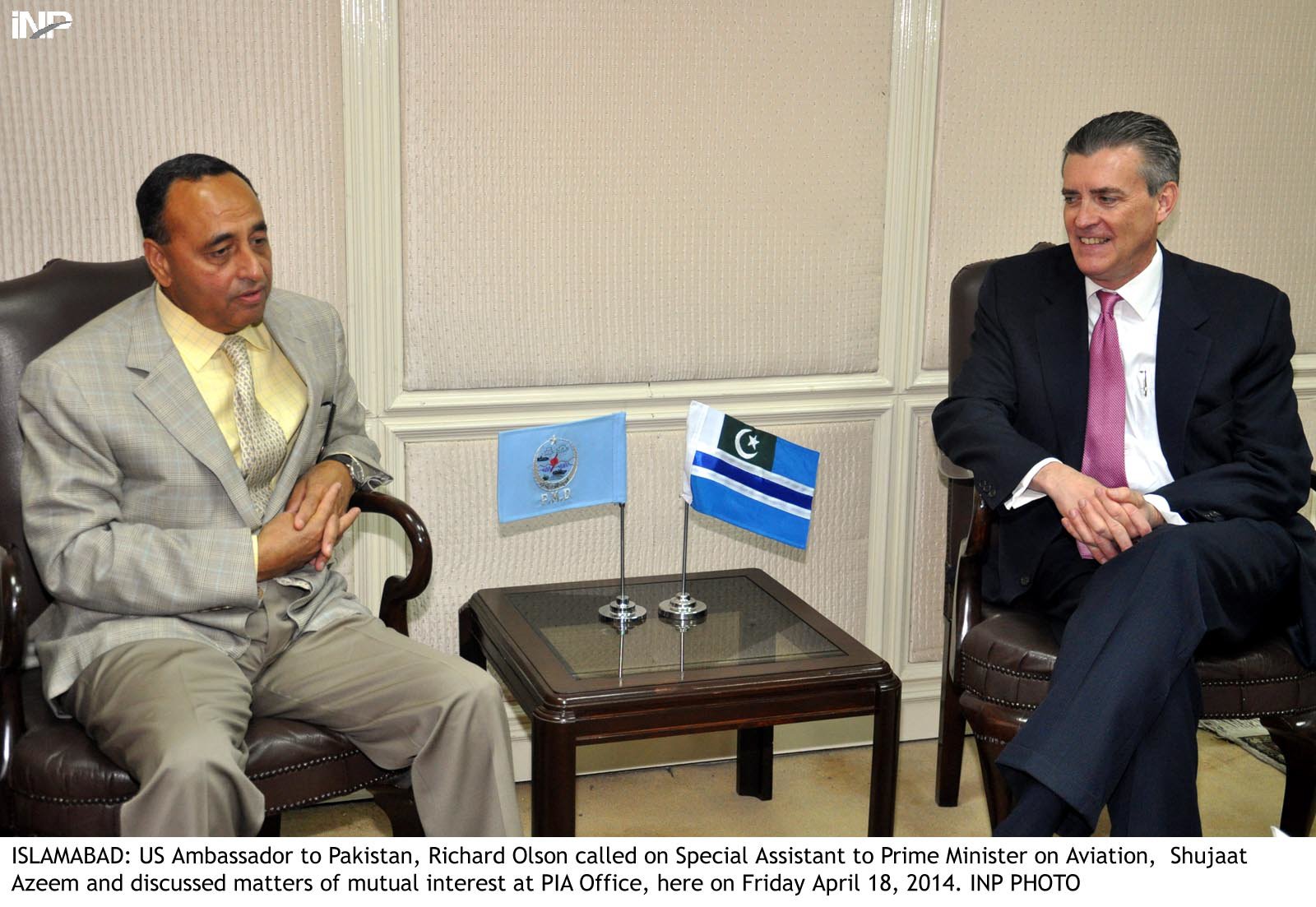
Prime Minister’s Aviation Adviser Shujaat Azeem has said that the new aviation policy, currently awaiting the government’s approval, foresees wider participation of the private sector, outsourcing of major airports and tax breaks for start-up airlines.
The National Aviation Policy 2014, awaiting the cabinet’s nod, will also allow the Aviation Division to have control over various agencies operating at airports in a bid to facilitate quick passage of passengers, he said..
“We haven’t revised the policy framework in the past 14 years even as the aviation industry has changed so much during the time,” Azeem said in an interview with The Express Tribune.
In a step forward, the policy will recommend outsourcing airports starting in northern cities like Lahore.

“With special attention being paid to hospitality, we want to ensure that those visiting Pakistan have a pleasant experience,” he said.
Control of private investors will be limited to terminal buildings, car parking and related facilities — not air navigation, he said. “We intend to engage International Finance Corporation (IFC) as the transaction adviser.”

The policy seeks to exempt import of aircraft from duties and taxes to encourage airlines to increase their fleets.
“I have recommended that there shouldn’t be any tax on investment in either general aviation or charter service. We should instead tax the earnings. Right now, we collect 28% under various heads and it discourages investment,” Azeem said.
In financial year 2013-14, government collected Rs1 billion from 19 aircraft, which were leased by Pakistani air carriers.
It has also been proposed to waive taxes on import of equipment and machinery for start-up operations at green-field airports.

But despite the fact that Pakistan’s aviation sector is struggling and does not contribute any significant amount to national exchequer, the Federal Board of Revenue has expressed its reservations.
While it has proposed tax breaks, the policy has made it harder for financially weak businessmen from entering the business. Paid-up capital for the airlines has been raised to Rs500 million from the current level of Rs100 million.
Airlines will be allowed to operate aircraft on wet lease for 180 days, an increase from the current limit of three months. But new airlines will be required to have at least five jets before starting operations. Right now, the Civil Aviation Authority (CAA) allows airline to operate with a minimum of three aircraft.
Under the new policy, airlines will not be allowed to induct planes, which are over 12 years old. “Airline bringing a 12-year-old jet could use it for another six years. We will allow two more years to find a replacement but that’s about it,” said Azeem.

It has also been proposed that the CAA invest Rs1 billion in acquiring lightweight aircraft, which could then be leased to flying clubs. This, the policy says, will help train pilots for Pakistani market and foreign airlines.
A new structure, supervised by Chief Operating Officers, will be introduced at important airports. All agencies like customs, Anti-Narcotics Force, Airport Security Force and Immigration will report to the COOs.
Azeem said that a similar system has already been introduced at the Islamabad airport where personnel of all the agencies check passengers at the same time.
“It could be really frustrating for someone to be stopped first by ASF, then ANF and then Customs. So I asked them to stand at one place, scan the baggage, check and let the passenger go. Six eyes are better than two anyway.”
For securer airports
The Airport Security Force (ASF), responsible for manning all the airports, has a strength of 10,000 men. Before the deadly attack at Karachi airport and attempts to shoot down a plane in Peshawar, the force was headed by an army officer of Brigadier rank.
However, now the government has appointed Major General Sohail Khan as DG ASF. He has two brigadier rank officers for the southern and northern region under his command.
Accommodations for the ASF guards are being built while their salaries are also being revised. A commando of the ASF force, just like the Special Services Group, will also be trained to deal with the worst situations.
Published in The Express Tribune, November 4th, 2014.
Like Business on Facebook, follow @TribuneBiz on Twitter to stay informed and join in the conversation.
COMMENTS (3)
Comments are moderated and generally will be posted if they are on-topic and not abusive.
For more information, please see our Comments FAQ

1725783822-0/Tribune-Pic-(15)1725783822-0-165x106.webp)



1732486769-0/image-(8)1732486769-0-270x192.webp)











Get rid of the National Carrier to private sector, if anyone is willing to buy it. Change Labour Laws, so that any Business Module may work for it. It will be great relief to the taxpayers, furthermore please stop employing people and preparing consultation papers at taxpayers expense, as non will ever see the light of the day !
When will this nonsense end ?........under the guise of improvement big money is spent and the organisation just gets worse.
You don't have to reinvent the wheel - many countries have far superior airports/airlines and govt involvement is often limited to providing safety/security rather than ownership/financing etc . How about consulting them and modeling a solution on a proven concept?